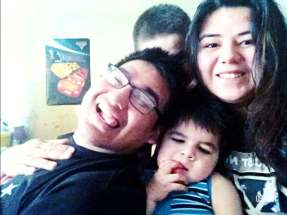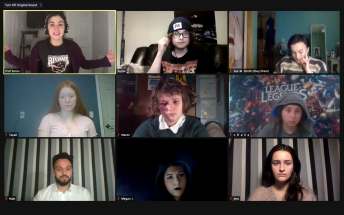Thinking inside the box Theatre students' feelings of isolation inspired playwright to Zoom in on online drama
Read this article for free:
or
Already have an account? Log in here »
To continue reading, please subscribe:
Monthly Digital Subscription
$0 for the first 4 weeks*
- Enjoy unlimited reading on winnipegfreepress.com
- Read the E-Edition, our digital replica newspaper
- Access News Break, our award-winning app
- Play interactive puzzles
*No charge for 4 weeks then price increases to the regular rate of $19.00 plus GST every four weeks. Offer available to new and qualified returning subscribers only. Cancel any time.
Monthly Digital Subscription
$4.75/week*
- Enjoy unlimited reading on winnipegfreepress.com
- Read the E-Edition, our digital replica newspaper
- Access News Break, our award-winning app
- Play interactive puzzles
*Billed as $19 plus GST every four weeks. Cancel any time.
To continue reading, please subscribe:
Add Free Press access to your Brandon Sun subscription for only an additional
$1 for the first 4 weeks*
*Your next subscription payment will increase by $1.00 and you will be charged $16.99 plus GST for four weeks. After four weeks, your payment will increase to $23.99 plus GST every four weeks.
Read unlimited articles for free today:
or
Already have an account? Log in here »
Hey there, time traveller!
This article was published 23/03/2021 (1721 days ago), so information in it may no longer be current.
Though theatres have largely disappeared from our lives since COVID-19 shut them down a year ago, actors gotta act. And playwrights gotta write.
The online video-conferencing app Zoom is one of the digital tools we’ve seen used to fill the void, alongside digital streaming. We’ve watched readings and plays delivered via Zoom, to various degrees of success
But it struck actor/playwright Debbie Patterson (Sargent & Victor & Me, How it Ends) that Zoom was a good metaphor of life in the 21st century, although it did not occur to her when she began workshopping her way through a play she was commissioned to write for theatre students at the University of Manitoba.
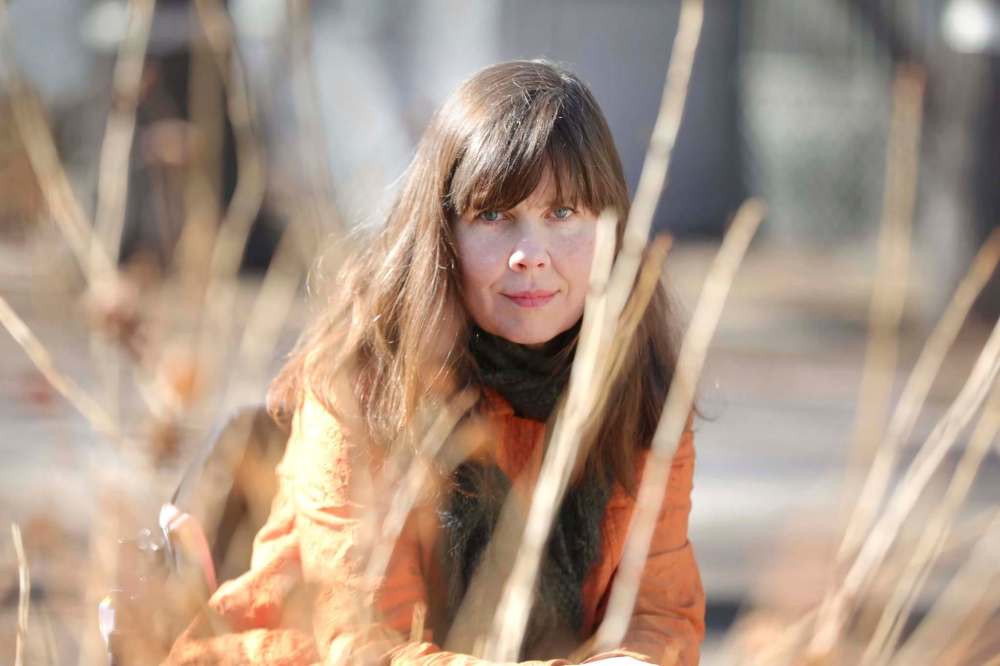
“They were interested in something that would excite them to perform,” Patterson says in a phone interview. “So we did this series of workshops and one of the things we talked about was the world of the play.”
Patterson says she asked the students: “What is the world that you feel like you’re living in right now?”
“They described feeling like they were isolated, feeling like they were living in little boxes, feeling like they were interacting with the world through their computers,” Patterson recalls. “And there was also this talk of windows — feeling like you’re inside looking out through a window and feeling like everyone was in their little box.
“What they described was a Zoom call,” Patterson says. “And this was pre-pandemic.”
● ● ●
Patterson, who has used a wheelchair off and on since she was diagnosed with multiple sclerosis in 1999, was obliged to stay in one after suffering an accident in early 2020.
THEATRE PREVIEW
Zoom Lens
By Debbie Patterson
● UM Theatre
● Today to Saturday at 8 p.m.
● Free on Zoom. For log-in info, go to wfp.to/zoomlens
She was participating in a workshop in Toronto when she fell and broke her hip; she was forced to stay in the city for a month.
“I had to have surgery and go into rehab and while I was in rehab, the pandemic started,” she recalls.
Patterson ended up leaving the hospital 10 days earlier than planned, because she was worried domestic flights would be grounded and she’d be stuck in an Ontario hospital during a pandemic.
After a period of recuperation, Patterson returned to the notes she took from her encounters with the theatre students and was amazed to find them shockingly pertinent to the pandemic moment.
“I had completely forgotten what had happened in our workshop because of my accident,” she says. “So I went through these notes and it blew my mind.
“They had described this world that we are actually living in right now. So it just seemed like an opportunity to double down on that and create a place that lives in Zoom. Because we actually are living our lives through technology. It seems like that’s where the drama is.”

The play she wrote, titled Zoom Lens, is about a university professor teaching a new class called Cultural Representations of Pandemics, which requires eight students to break into four teams to explore Emily St. John Mandel’s 2014 novel Station Eleven, Kevin Kerr’s play Unity (1918), the video game The Last of Us Part Two and the Netflix documentary series Tiger King.
“The teacher has young kids and her relationship falls apart through the course of the play, so she ends up single-parenting and teaching and isolating, so her life gets thrown into chaos.”
U of W play has eye on intimacy
The University of Winnipeg will be closing its theatre season with the play Blink, by British playwright Phil Porter, directed by Royal Manitoba Theatre Centre’s associate artistic director Audrey Dwyer.
It too is about the theme of disconnection in its story of a young man who interacts with a woman through a baby monitor he has received in the mail.
“We live in a world where connection has always been challenging,” says Dwyer of the play. “These young adults show us the lengths that they will take to find closeness, intimacy and a world where they feel accepted.”
Blink runs nightly from Tuesday, March 30, to Saturday, April 3. Audiences can view the live performances at 7:30 p.m. each night through a private YouTube channel. Admission is free but reservations are required, either through wfp.to/seeblink or by phone at 204-786-9152.
If the spontaneity and excitement of live theatre is missing from online platforms, Zoom can add something too, Patterson says.
“One of the things that I miss about live theatre that I feel doesn’t translate well to live streaming is the interactive quality,” Patterson says. “There’s just something about that conversation that is between the performer and the audience that I really miss.
“So I tried to find ways to address that with this play so the audience has some sort of connection to the lives next to the intimacy of the play,” she says. “One of the things about the Zoom meetings that I find incredibly moving is the way we are in each other’s homes, often in each others bedrooms.
“I’ve had so many business meetings with people in their bedrooms and it’s incredibly intimate.”
Zoom Lens capitalizes on that; all the actors are actually in their own homes and some of their pets even make appearances.
“We wrote in a couple of dogs,” Patterson says.
Living through a pandemic is not without its positive aspects, she says, even as vaccination — Patterson has been vaccinated — promises a return to “normal.”
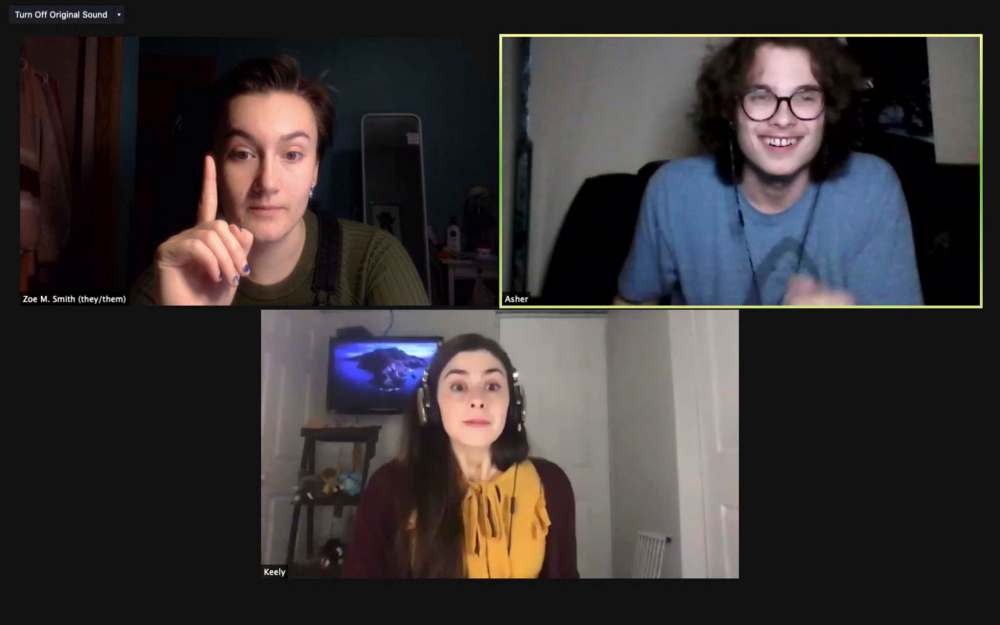
“I hope we don’t go back to the way we were,” she says. “I’ve been really loving so many aspects of this time. I love that we’ve decided that our well-being is more important than our productivity. And I hope we can continue to prioritize well-being over productivity. I feel that relationship was completely off-balance before.
“A lot of people I know are having a really hard time getting through this pandemic and I feel like I’m kind of coasting through,” she says. “I’m sort of used to not being able to do the things that I want to do and being OK with it and moving on and finding something else and letting go.
“I’m really good at all those things because I’ve had to get good at it,” she says. “Having that lived experience and developing those skills has been super-valuable.”
randall.king@freepress.mb.ca
Twitter: @FreepKing
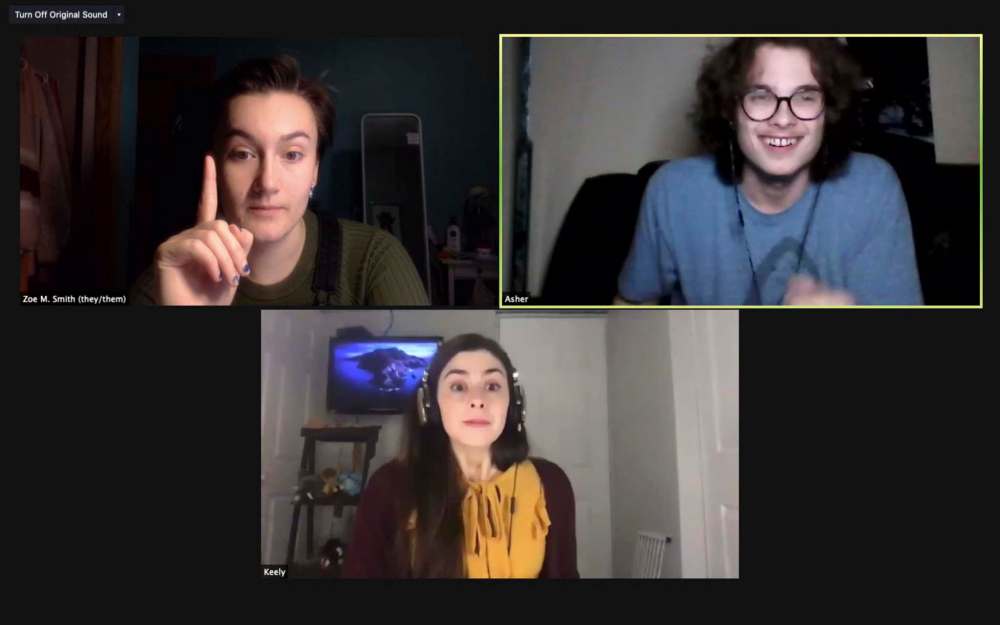
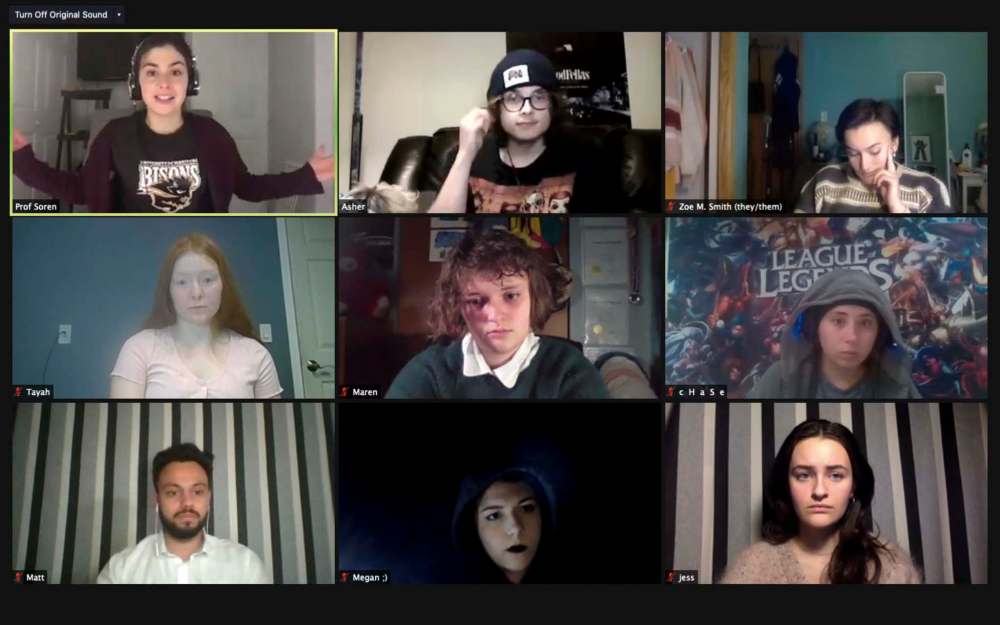

In a way, Randall King was born into the entertainment beat.
Our newsroom depends on a growing audience of readers to power our journalism. If you are not a paid reader, please consider becoming a subscriber.
Our newsroom depends on its audience of readers to power our journalism. Thank you for your support.

